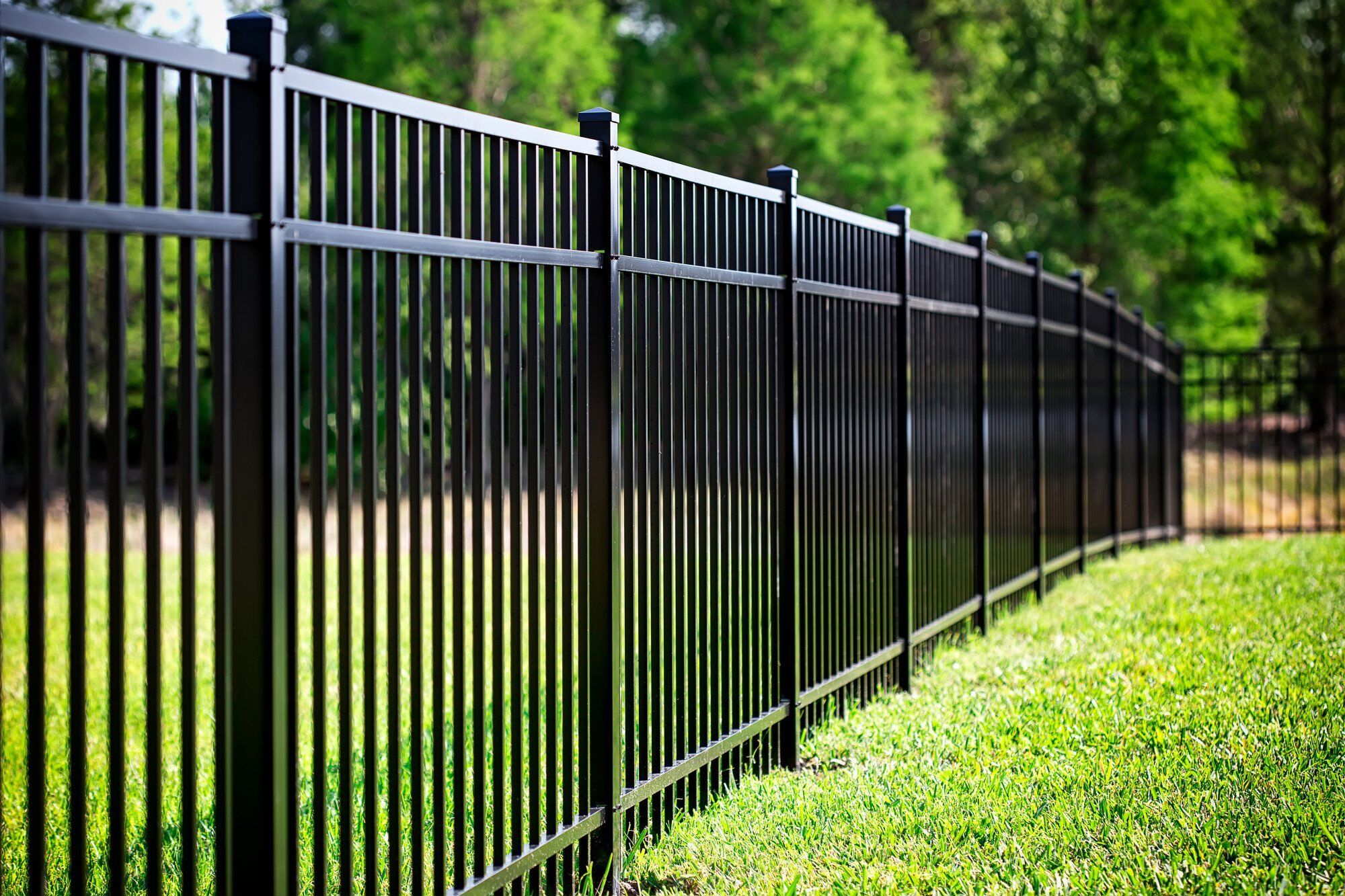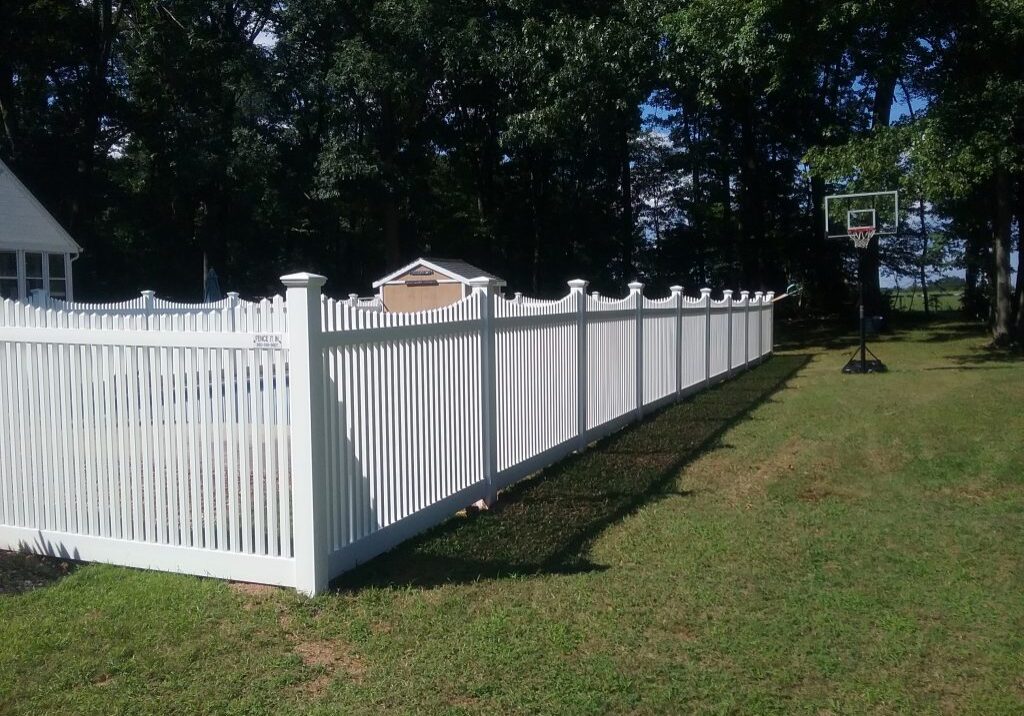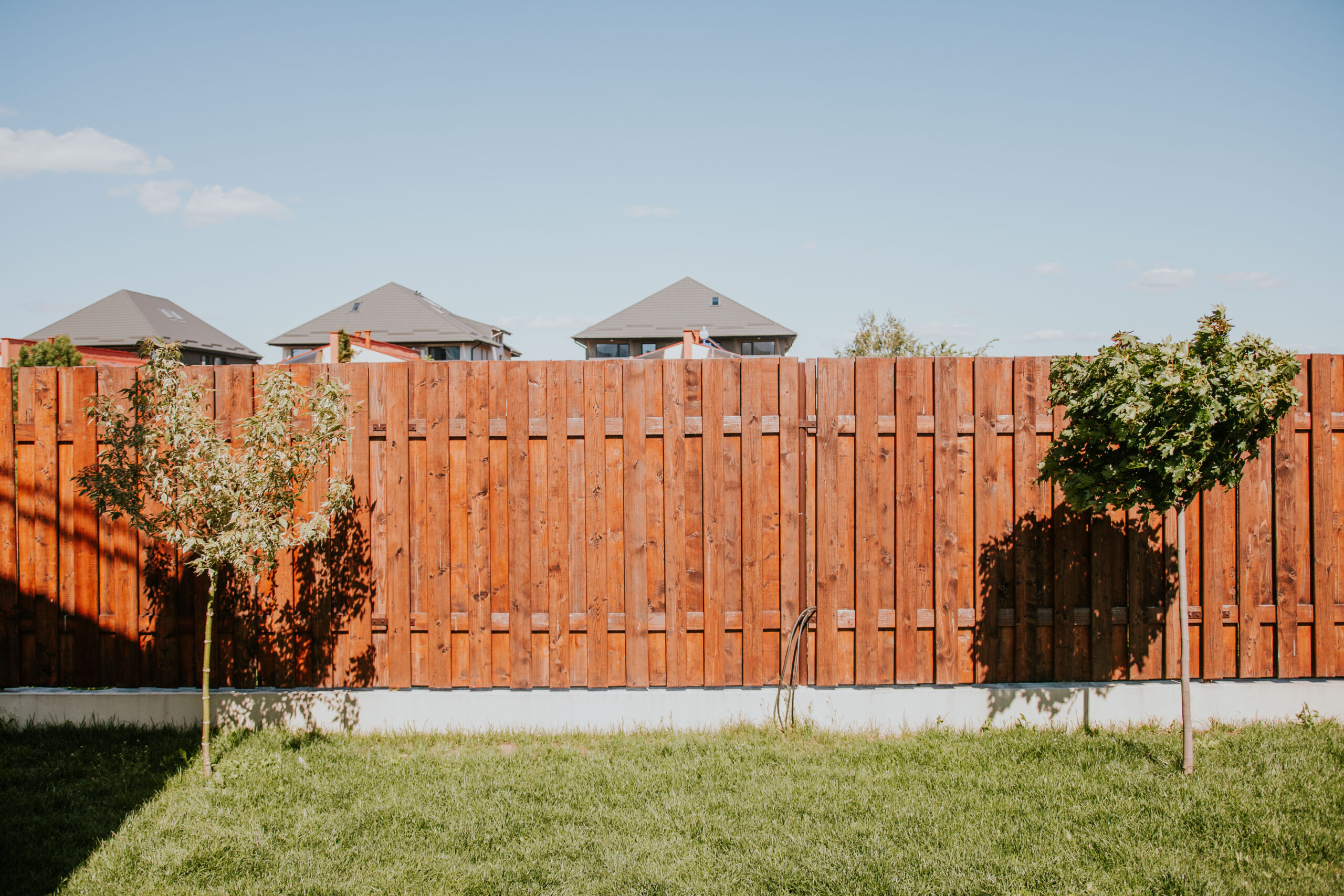All Categories
Featured

Choosing the ideal fence material is necessary for accomplishing the balance of durability, visual appeals, and performance that suits your residential property. Timber, plastic, and light weight aluminum are popular options, each with one-of-a-kind attributes that accommodate particular needs. Below's an extensive look at the benefits and downsides of these three materials.
Wood Fence. Pros:. Ageless Charm: Timber provides an all-natural, classic look that enhances different architectural designs. Customizable: It can be painted or discolored in a variety of shades and designs. Budget-friendly: Wood fences are typically less expensive upfront than vinyl or light weight aluminum. Eco-Friendly: As a renewable energy, timber is eco-friendly and lasting when sourced sensibly. Cons:. Maintenance-Intensive: Calls for regular staining, paint, or sealing to safeguard against climate and bugs. Shorter Lifespan: Depending on the kind of timber and climate, it generally lasts 10-15 years. Susceptability to Damages: Prone to decomposing, warping, and termite damage without appropriate care. Wood is optimal for home owners that value aesthetics and want to invest effort and time in maintenance to extend its life.
Vinyl Fencing. Pros:. Durable: Immune to bugs, rot, and weather, plastic maintains its framework in rough problems. Low Upkeep: Requires little upkeep past periodic cleansing. Lengthy Life-span: Plastic can last 20-30 years without considerable wear or damages. Functional Layouts: Readily available in various shades, structures, and styles, including options that simulate wood. Cons:. Pricey Installment: Vinyl fencings are extra costly to set up contrasted to timber. Fragile in Cold Weather: Vinyl can break in extreme chilly climates. Difficult to Fixing: If damaged, entire sections might need substitute, which can be testing to match. Vinyl fence is a fantastic choice for those prioritizing longevity and minimal maintenance, also if it includes a greater in advance price.

Aluminum Fencing. Pros:. Rust-Resistant: Aluminum does not corrosion, making it suitable for humid or moist areas. Solid but lightweight: Offers strength without being excessively heavy, which simplifies setup. Reduced Upkeep: Needs bit greater than cleaning and periodic repainting. Longevity: Aluminum fencings can last for decades without substantial deterioration. Stylish Styles: Commonly utilized for decorative purposes, light weight aluminum adds class to any type of residential or commercial property. Disadvantages:. High Initial Cost: Aluminum fencings are amongst the much more expensive choices. Minimal Privacy: Often developed with open rooms, they do not block sights or sound. Prone to Damages: While tough, aluminum can be nicked or curved with heavy impact. Light weight aluminum is best matched for those who want a long-lasting, stylish fencing and do not call for total personal privacy.
Making the Right Selection. Each material has its weak points and strengths:

Timber is excellent for eco-conscious purchasers and standard looks that do not mind upkeep. Vinyl benefits house owners looking for a weather-resistant, low-maintenance service. Aluminum is a sturdy, ornamental alternative for those that desire sophistication and long life. Consider your priorities-- whether it's cost, maintenance, privacy, or look-- and consult a fence expert to choose the material that ideal satisfies your demands. A well-selected fence will enhance your property for several years to find.
Latest Posts
Grab Special Auto Repair Deals in Chicago at Montclare Auto Repair
Published Jun 01, 25
1 min read
Learn About Exceptional Car Repair Solutions at Montclare Auto Repair – Keep Your Car Running Smoothly
Published May 29, 25
1 min read
Find Brake Repair & More: Comprehensive Auto Care Solutions from Montclare Auto Repair
Published May 28, 25
1 min read
More
Latest Posts
Grab Special Auto Repair Deals in Chicago at Montclare Auto Repair
Published Jun 01, 25
1 min read
Learn About Exceptional Car Repair Solutions at Montclare Auto Repair – Keep Your Car Running Smoothly
Published May 29, 25
1 min read
Find Brake Repair & More: Comprehensive Auto Care Solutions from Montclare Auto Repair
Published May 28, 25
1 min read